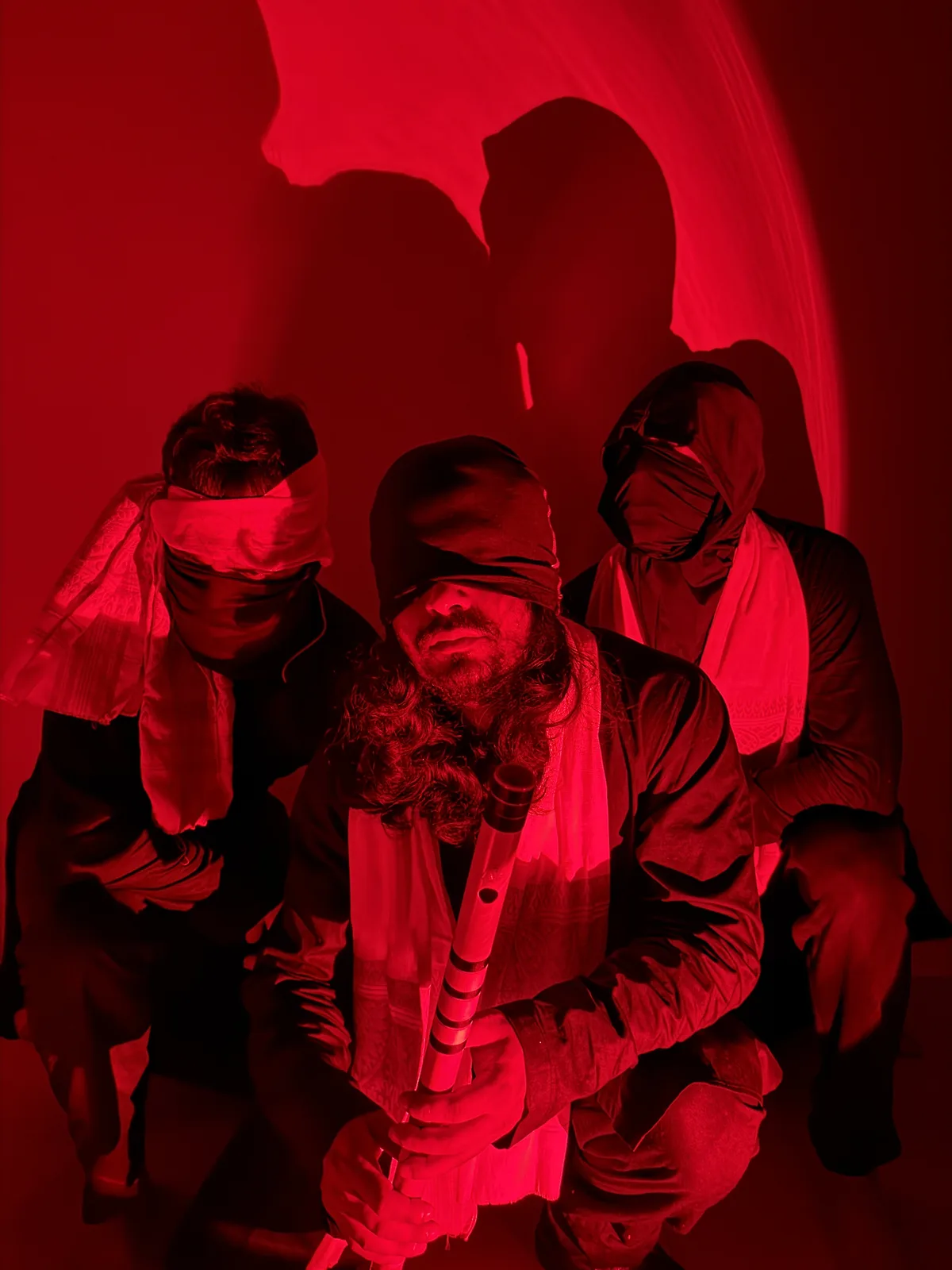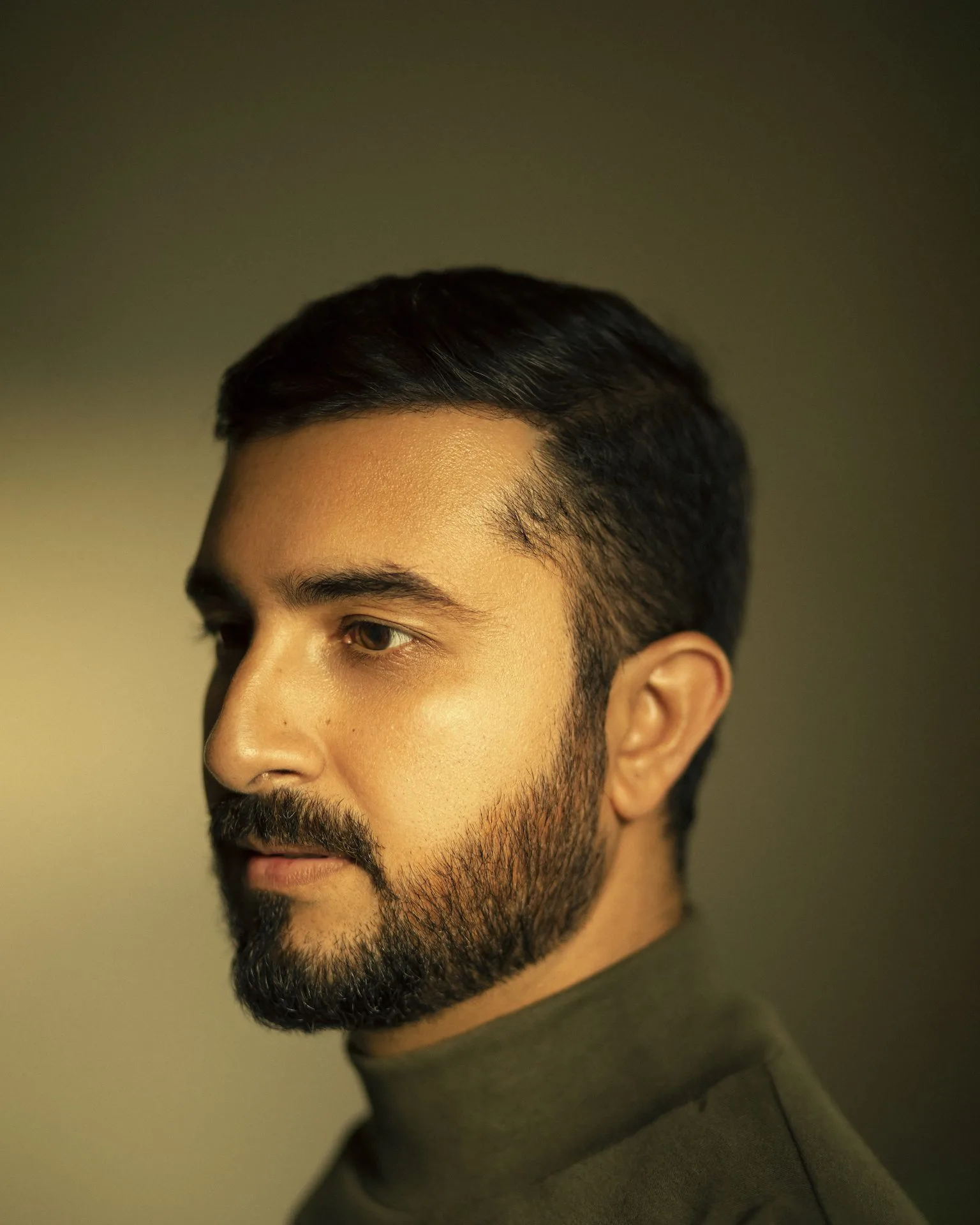New-Delhi-based music composer, singer and guitarist Varun Rajput’s project ‘Antariksh’ is a premier Hindi-Rock act that has thrived in the indie music scene and continue to deliver performances filled with calibre and excellence. In its 10-year-long journey, the band has seen more ups than downs and has been accompanied by some of the finest session musicians in India. MTV recognised Antariksh as one of India’s best Hindi Rock bands and the band has played at multiple Coke Studio Live Nights across the nation. ‘Antariksh’ has performed at over 800 concerts worldwide and if you have witnessed their performances you will know that the live shows are not your typical rock gigs. The band shows persistent efforts in delivering power-packed live-rock performances. ‘Antariksh’ has collaborated and shared the stage with some eminent personalities like Farhan Akhtar, Ehsaan Noorani, Lucky Ali and much recently with Megadeath’s former guitarist Marty Friedman for their upcoming project ‘Quest’.
Celebrating 10 years of ‘Antariksh’, the band will be touring India from September to December promoting their recent English reprise version of ‘Quest’. The band’s discography includes popular singles like ‘Kaahe Re’, ‘Kaisi Ye Jeet?’ and ‘Fanaah’. With ‘Antariksh’, the name Varun Rajput has become essential when it comes to progressive Hindi rock in India and the artist is full of promise. We have known ‘Antariksh’ for a decade now and we are even more excited to know them off-stage. In this round of interview, we get to know more about Varun’s journey and what ‘Antariksh’ means to him. Read more below.
1. When did you start writing/producing music? What was it about music that drew you to it?
I’ll answer the second question first 🙂 I think it’s very hard to define as to what exactly was it about music that drew me to it but when I try to think of it and go back to my childhood days, I think it was a lot of active and passive listening. My father was a really avid listener, had this huge cassette collection and had this daily routine of just playing music in the house every morning, and of course in the car. I remember I would really enjoy listening to music casually but it wasn’t until I was 14 that I realised that I really enjoyed listening to music and then started exploring various styles of music including Pop, Ghazal, Qawwali, Rock, Hindustani Classical. I would casually sing a bit at school choirs or play a bit of tabla and harmonica here and there, but it wasn’t until 19 that I actually picked up playing an instrument properly, which happened to be the guitar. As far as writing/producing music goes, I think I started doing that back in 2006 with my first band called Feedback. Although I wasn’t writing entire songs – it was mostly contributions to some lyrical and guitar parts of the songs that the band was writing. It was around 2007/2008 – when I learnt the processes of recording and mixing which led me into composing and producing full songs on my own.
2. ‘Antariksh’ being in the Indian Rock music scene for over a decade, has played in more than 800 concerts worldwide. What do you enjoy the most about touring/playing live?
I just love the energy and atmosphere of happiness that live music creates. I grew up listening to a lot of rock bands and watching live concert videos and I would always picture myself doing that someday. For me, it was always a dream and when I actually started playing live, I realised it was way better than what I’d imagined. Being able to play and perform live with a great set of musicians just brings me a lot of joy and if you’re able to connect well with the audience and deliver a good experience, there’s no better feeling in the world. Touring, however glamorous it may appear is really hard – taking flights at ungodly hours, travelling for hours at stretch without proper sleep, hectic schedules, long sound-checks, eating at odd hours and working around event schedules does take a toll on you but I guess as you start to become a relatively bigger act, some of these things get slightly easier to manage as you have a support team. But on the upside, you also get to see so many new places – so I guess it’s all good.

3. It’s Antariksh’s 10-year anniversary as a band. What has changed for you and what has been the same?
I guess what’s remained the same is the process of writing music with a certain honesty and sincerity as well as taking an uncompromising approach when it comes to songwriting, recording and producing our songs. A lot of people recently have been asking me that, so many members have changed over the years, “how does Antariksh still maintain a consistent signature sound?” I think the answer to that is simply the fact that I try not to cut any corners, follow unnecessary trends or take shortcuts to compose or produce music and what we write comes from a very organic, genuine place. So, I’m really glad that, it hasn’t changed over these 10 years. What has definitely changed or evolved is our collective musical influences, or the personality that different members bring when playing on records or playing live. Antariksh started out as a band in 2012 and since then most of the founding members moved abroad to pursue other goals. Antariksh has existed in various different configurations in the last 6-7 years and has evolved to become more of my personal project with some great session musicians than a band in terms of operations and logistics. As much as I would have loved to have all full-time band members, I’ve grown to accept the fact that it’s really difficult to find a bunch of people with similar goals, ambitions, life situations, drive, musical tastes etc. and that’s totally okay.
4. Your recent release features former Megadeth guitarist Marty Friedman and the song is an English Reprise version of ‘Quest’. How did you present the song to the maestro, how was his reaction?
Well, I’ve spoken about this quite a few times but just to put it out once again, concisely – I think it was a bit of luck and a bit of persistence. I met Marty at the Delhi airport as he and his band as well as Antariksh were returning from Shillong after playing the Bacardi NH7 Weekender in 2019. We spoke briefly about a bunch of guitar-related things and some of his recent music and collaboration with Keshav Dhar of Skyharbor.
Ever since I had heard him play live, I’d been imagining how epic it’d be if Marty were to play on our song, ‘Quest’, which we were in the process of recording at that point in time. After playing the thought almost a hundred times in my head, I finally gathered the courage to ask him and then he asked me to write to him.
Once he returned to Japan, I sent him some of our music including our songs, ‘Shoonya’, ‘Aur’ and ‘Kaahe Re’. Marty not only took the time to listen to a bunch of songs – he liked it and mentioned that it sounded a lot more “International/UK-US Rock-ish ” than what he’d expected coming from India. It was when I sent him a demo of ‘Quest’, he agreed to play on it and bang, within a few days I had a mind-bending solo in my e-mail.

5. Who were the musical influences or bands/artists growing up that have helped mold you into the artist you are today?
Honestly – way too many across various stages in life. However, if I were to list some of the really big ones, they’d be – Pain of Salvation, Dream Theater, Queen, Pink Floyd, Marty Friedman, Iron Maiden, AR Rahman, Nusrat Fateh Ali Khan, Bryan Adams, MLTR, Freak Kitchen, The Dear Hunter, MARO, Whitesnake, John Mayer, Guns n Roses.
6. What do you like to do outside music?
I’ve been fortunate enough to have had the opportunity of being a full-time musician since almost 10 years which includes composing, recording, performing, producing and building Antariksh. I also record and produce jingles as well as for other artists at Antariksh Studios and play sessions for Parikrama and a few other bands on and off. Prior to taking up music full-time, I did my engineering from DTU, worked as a management consultant for a few years and had a short stint with a tech startup. If you mean what my hobbies and life are outside of being a musician – well, playing various sports and travelling is something I really dig – other than that, it’s just watching movies, spending time with loved ones, reading a book once in a while – all the usual stuff.
7. Do you think it is important to find the perfect instrument for the sound that you are going for or does emotion supersede that?
You know there can’t be one right answer. If you have a specific sound in your head while composing a certain part – knowledge of various instruments always helps in achieving/creating/re-creating that particular sound. Emotion comes into play when you’re actually playing the instrument – I feel your playing style and how you add soul and emotion to a part that you ing/play is just an extension of your personality as well as a function of the years you’ve put in practising the instrument.
8. What do you dislike the most about the current music scene in India? How would you like that to change?
The thing that I hate the most is the lack of meritocracy and structure in the music industry. and also the fact that the gatekeepers of various music labels are people who barely understand or care for music and are only there to turn music into a commodity while killing the art in it, thus progressively forcing the songwriters to dumb their songs down to create shit that sells. It pains me to see that at the top level, no one gives a damn about music or art – labels don’t want to create artists but products or rather sheep that they can milk and make money out of. I guess commercial music has always been like that. It’s probably just that I’ve come to see it this close, more recently, which is why it boils my blood.
For example, at the recent All About Music conference, there was a session where some of the labels were giving feedback to young singer-songwriters – the kind of suggestions or “feedback” they had was just downright ridiculous and derogatory. One of them even asked an English singer-songwriter to start writing in Hindi – and that’s when we just walked out of the room. I just found it so atrocious and coming from a place where there was just no knowledge or understanding of the music or musical process. Instead of guiding someone as to how they can improve their songwriting, production, approach towards music business etc. they have been constantly telling people to shorten song intros, start with hooks and choruses, shorten song lengths to less than 2 minutes, remove and low energy/contrasting part, force-fit controversial or double meaning lyrics and stuff like that just completely murdering the organic songwriting process and its dynamics. If you come to think of it, Pink Floyd, Queen, Led Zeppelin, or for that matter Madan Mohan, Shankar Jaikishan etc would have been miserable failures had they started making music in today’s times.





























